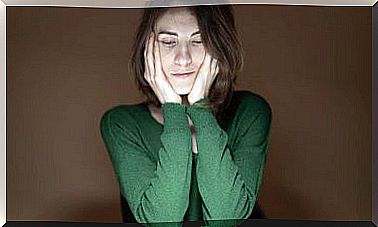Caffeine, Stress And Health

Caffeine is a stimulant with which many people have their own love-hate story because, on the one hand, it helps them to be active, but on the other hand it causes them other problems, such as difficulty sleeping or increased stress levels.
The truth is that there is a lot of confusion around whether caffeine is good or bad and to what extent it is convenient for us to consume this stimulant or not.
Effects of caffeine on the body
Caffeine has direct effects on our hormones within a few minutes of ingesting it, and its effect lasts for 4-6 hours. The hormones that caffeine affects are:
-Caffeine affects the absorption of adenosine, a hormone that calms the body. Although at first we feel more alert, this effect can cause us to have sleep problems. Therefore, it is important to take into account the hours that the effect of caffeine lasts with respect to the time we want to rest.
-Caffeine also affects adrenaline levels, which are increased, making us feel less fatigued and less depressed. The problem is that this agitation prevents relaxation and, therefore, rest, causing states of nervousness. In some circumstances, as they say, the remedy is worse than the disease.
-Caffeine also increases the levels of cortisol, which is the stress hormone. This can lead to other health consequences, such as weight gain (if stress prompts you to eat uncontrollably – mood swings, heart disease or even diabetes.
-Caffeine also causes dopamine levels to increase, a hormone that acts in a similar way to amphetamines. This makes us feel better when drinking caffeine, but when the effect wears off, it is easy for a “down” state to ensue. One of the great problems is the dependence or addiction that can occur to seek the peak and avoid the subsequent consequences.
Consequences of caffeine intake
-Caffeine can seriously affect sleep and rest if the last hour of intake is not controlled with respect to the time of sleep or rest. Sleep is a fundamental restorative element, and it cannot be compensated with the intake of any stimulant or any drug. In any case, caffeine can cause difficulties in falling asleep, but it does not affect the phases of sleep like other stimulants do, so it is the best option if you need to drink something to stay awake.
– Many experts agree that increased cortisol levels make people more craving to eat foods rich in fat and carbohydrates and cause the body to store them in the abdomen, which poses serious risks to cardiovascular health . Curiously, eating foods rich in fat and carbohydrates causes a greater desire for caffeine, which makes us enter a vicious circle that is difficult to solve.
-However , caffeine speeds up the metabolism and can help break down fat about 30% more effectively if consumed before exercising. This, together with the fact that caffeine can help increase blood sugar levels -which reduces the feeling of hunger-, makes caffeine consumption very interesting before doing physical activity to increase levels of energy and performance.
A problem that caffeine can cause is the subsequent feeling of tiredness and fatigue, after carrying out intense physical activities, when the effects of caffeine wear off, making it difficult to carry out other subsequent activities. But if used in moderation, consuming caffeine before exercising is helpful for both performance and endurance and to promote fat burning. The key is to ingest the caffeine before exercising and exercising at least 4-6 hours before sleeping or resting.
Caffeine and stress
Since caffeine increases cortisol levels and cortisol raises stress levels, high amounts of caffeine can lead to negative health effects associated with increased cortisol levels. If you ingest a lot of caffeine it is easy to feel a precipitous drop in mood, which will cause the need to drink more and more to stay animated, that is, an addiction to caffeine.
Therefore, it is best to monitor when caffeine is ingested and how much is taken. It is as important to moderate the amount as the moment so as not to interfere with the rest cycles and that the irritability caused by overstimulation and lack of sleep does not complicate the situation even more.









